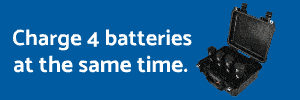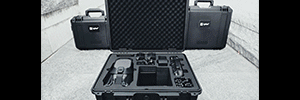Just curious what other peoples thoughts are
It adds like 12 min extra flight time? Is that very noticeable? Is it worth the headache and having to obey other regulations you wouldnt have to otherwise?
As a drone above 250g you would no longer be able to fly during night time, would have to stay further away from airports etc and large parts of the city here in Toronto become no fly zones where you could fly there with a 250g no problem
It adds like 12 min extra flight time? Is that very noticeable? Is it worth the headache and having to obey other regulations you wouldnt have to otherwise?
As a drone above 250g you would no longer be able to fly during night time, would have to stay further away from airports etc and large parts of the city here in Toronto become no fly zones where you could fly there with a 250g no problem











